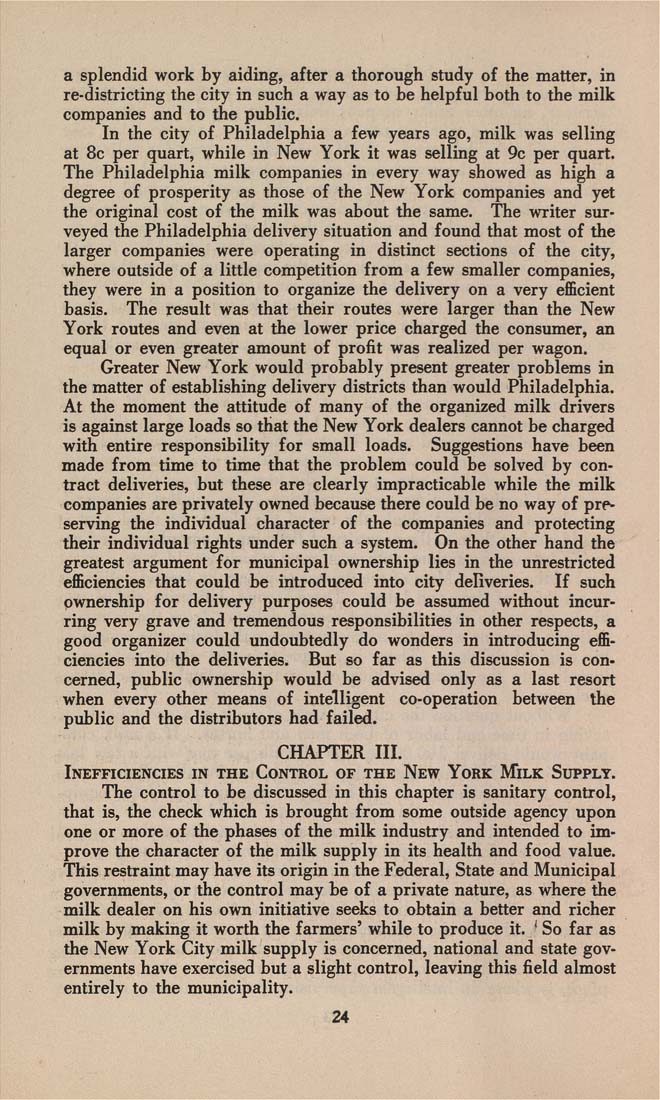a splendid work by aiding, after a thorough study of the matter, in
re-districting the city in such a way as to be helpful both to the milk
companies and to the public.
In the city of Philadelphia a few years ago, milk was selling
at 8c per quart, while in New York it was selling at 9c per quart.
The Philadelphia milk companies in every way showed as high a
degree of prosperity as those of the New York companies and yet
the original cost of the milk was about the same. The writer sur¬
veyed the Philadelphia delivery situation and found that most of the
larger companies were operating in distinct sections of the city,
where outside of a little competition from a few smaller companies,
they were in a position to organize the delivery on a very efficient
basis. The result was that their routes were larger than the New
York routes and even at the lower price charged the consumer, an
equal or even greater amount of profit was realized per wagon.
Greater New York would probably present greater problems in
the matter of establishing delivery districts than would Philadelphia.
At the moment the attitude of many of the organized milk drivers
is against large loads so that the New York dealers cannot be charged
with entire responsibility for small loads. Suggestions have been
made from time to time that the problem could be solved by con¬
tract deliveries, but these are clearly impracticable while the milk
companies are privately owned because there could be no way of pre¬
serving the individual character of the companies and protecting
their individual rights under such a system. On the other hand the
greatest argument for municipal ownership lies in the unrestricted
efficiencies that could be introduced into city deliveries. If such
ownership for delivery purposes could be assumed without incur¬
ring very grave and tremendous responsibilities in other respects, a
good organizer could undoubtedly do wonders in introducing effi¬
ciencies into the deliveries. But so far as this discussion is con¬
cerned, public ownership would be advised only as a last resort
when every other means of intelligent co-operation between the
public and the distributors had failed.
CHAPTER III.
Inefficiencies in the Control of the New York Milk Supply.
The control to be discussed in this chapter is sanitary control,
that is, the check which is brought from some outside agency upon
one or more of the phases of the milk industry and intended to im¬
prove the character of the milk supply in its health and food value.
This restraint may have its origin in the Federal, State and Municipal
governments, or the control may be of a private nature, as where the
milk dealer on his own initiative seeks to obtain a better and richer
milk by making it worth the farmers' while to produce it. ' So far as
the New York City milk supply is concerned, national and state gov¬
ernments have exercised but a slight control, leaving this field almost
entirely to the municipality.
24
|








